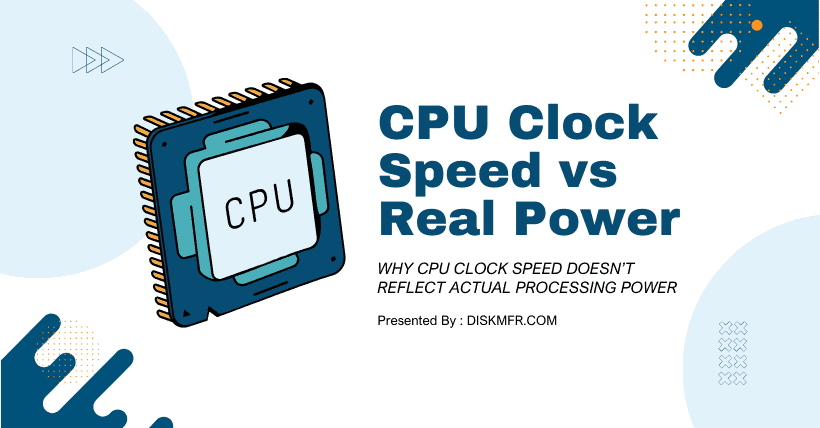The CPU clock speed is like the speed of a car: the faster the speed, the shorter the transportation time. Similarly, the higher the clock speed, the shorter the time it takes to complete a calculation.
However, this applies only to CPUs with the same architecture, similar to how the conclusion is only valid for cars with the same cargo capacity. If one car carries 2 tons and runs at 80 kilometers per hour, and another car carries 5 tons and runs at 60 kilometers per hour, it’s obvious that only when transporting less than 2 tons would the 2-ton car take less time. Otherwise, the 5-ton car would generally take less time.
Similarly, CPUs have IPC performance, which stands for Instructions Per Clock. This performance measures how many instructions can be processed per clock cycle. If the IPC is high enough, it can offset the disadvantage of a lower clock speed and even outperform higher-frequency CPUs. Apple’s M1 is an example of such a CPU.
In addition to cargo capacity itself, to improve transportation speed, multiple vehicles can be used together. In computers, this is called multi-processor systems. Clearly, four 2-ton cars running at 60 kilometers per hour usually take less time to transport goods than two 2-ton cars running at 80 kilometers per hour, unless all the goods can be transported at once. This is the difference between dual-processor and quad-processor systems.
Now, many CPUs are multi-core, which can be understood as a car with multiple trailers. Clearly, the more trailers there are, the shorter the transportation time. So, an 8-core CPU has better performance than a 6-core CPU, and a 6-core CPU is better than a 4-core CPU. However, the more trailers there are, the slower the car usually runs, so an 8-core CPU often has a lower clock speed than a 6-core CPU.
Besides the CPU itself, peripheral devices also affect performance. It’s like loading and unloading cargo: manual unloading is definitely slower than using a forklift, just as memory performance affects CPU performance.
Finally, the total transportation time depends on all factors combined: the truck’s cargo capacity, speed, number of trailers, and unloading equipment speed, among others. Simply having a high speed doesn’t necessarily mean a shorter time. Similarly, to determine how long a CPU takes to complete a task, one must consider IPC performance, clock speed, core count, and memory performance. High clock speed alone is not enough.
Related:

Disclaimer:
- This channel does not make any representations or warranties regarding the availability, accuracy, timeliness, effectiveness, or completeness of any information posted. It hereby disclaims any liability or consequences arising from the use of the information.
- This channel is non-commercial and non-profit. The re-posted content does not signify endorsement of its views or responsibility for its authenticity. It does not intend to constitute any other guidance. This channel is not liable for any inaccuracies or errors in the re-posted or published information, directly or indirectly.
- Some data, materials, text, images, etc., used in this channel are sourced from the internet, and all reposts are duly credited to their sources. If you discover any work that infringes on your intellectual property rights or personal legal interests, please contact us, and we will promptly modify or remove it.








